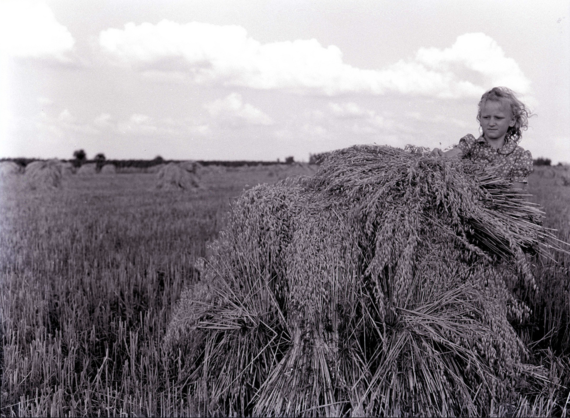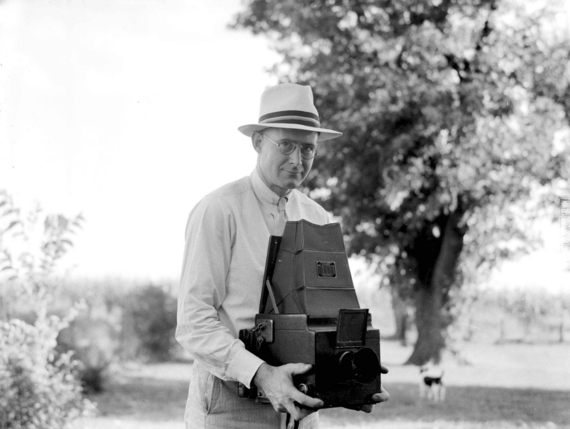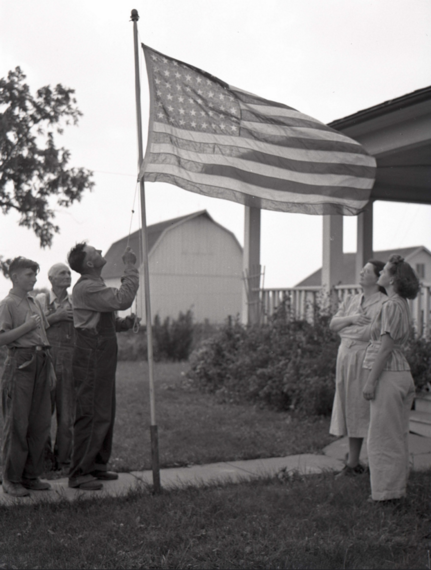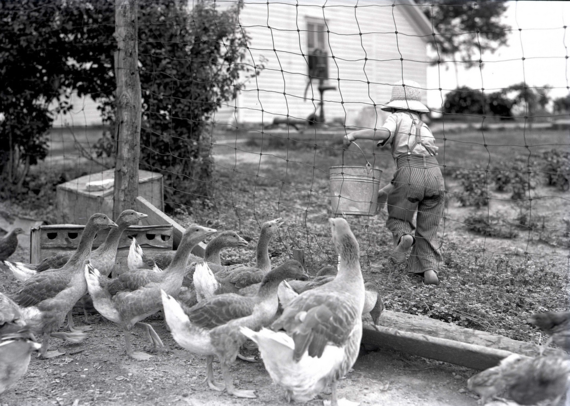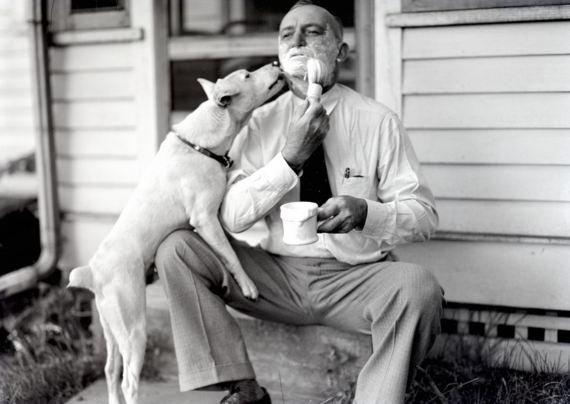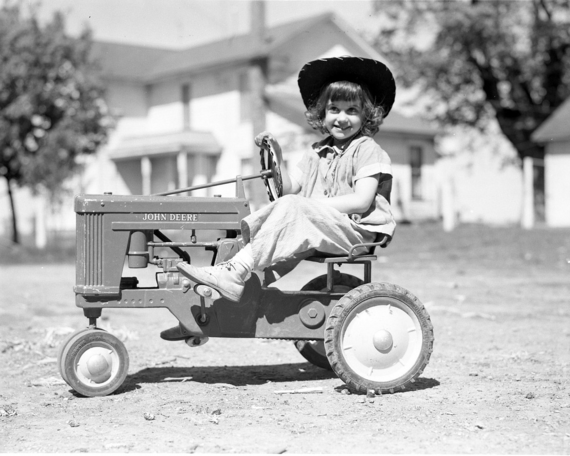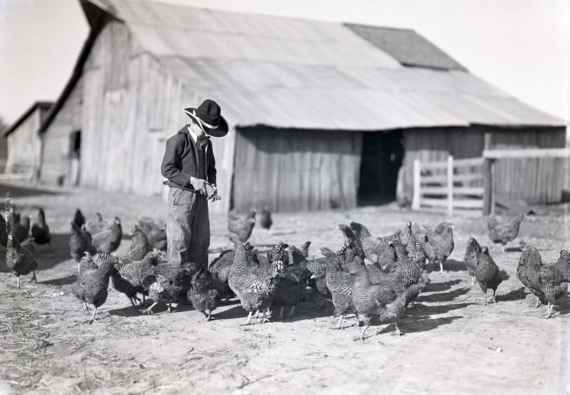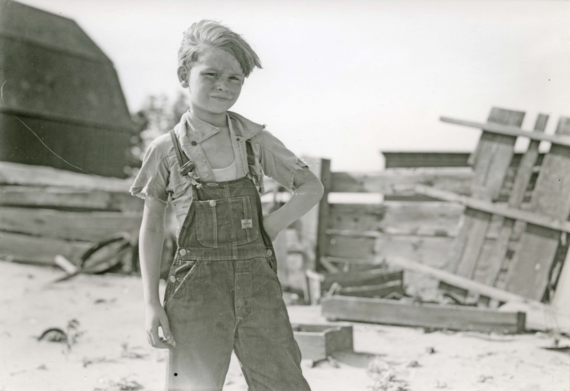It's the summer of 1936. America is facing one of the most economically devastating periods in its history. A mere seven years earlier, the stock market had collapsed, an event that sent ripples through the world economy, skyrocketing unemployment rates in the United States to 25 percent and crippling the American economy. And then came the drought, choking the Great Plains from any meaningful precipitation. Crops failed and farms withered so badly that the area came to be known as the Dust Bowl. This one-two punch brought much of America to its knees, grasping for some way to rebound from the onslaught of horrible luck and circumstance.
Funded by the Farm Security Administration and led by Columbia University-educated economist Roy Stryker, a group of intrepid photographers -- including heavy hitters such as Dorothea Lange, Walker Evans, Gordon Parks, and Russell Lee, were tasked with the mission of visually documenting the hardships wrought by the Great Depression and drought. They would create what Stryker dubbed a "visual encyclopedia of American life." In the end, the FSA photographers produced more than 80,000 negatives and some of the most iconic photographs in American history. But this isn't a story about them. This is a story about an unassuming man in rural Iowa who wound up making one of the most beautiful and prolific sets of photographs showcasing life in Iowa during the Great Depression and beyond.
Arthur Melvile Wettach was born in New Jersey in 1901. But "Pete," as he was known, had a fascination with farming that led him to Mount Pleasant, Iowa, where he remained for the rest of his life. Pete, too, worked for the Farm Security Administration, but unlike Evans or Lange, he was hired not as a photographer, but as a county supervisor in the FSA's tenant farmer program. Pete's role was to work closely with famers and help them apply for government loans and aid. Yet as much as Pete loved farming, another passion was brewing as a side hobby: photography.
While the well-outfitted, commissioned FSA photography corps were traveling across America documenting life throughout the country, Pete was hauling his large-format Graflex camera everywhere he went in Iowa, photographing the farmers he worked with and the daily Iowa life he knew so well. Unlike Evans or Lange, Pete was not a transient photographer showing up one day to photograph a situation and leaving the next. Pete's subjects were much closer to him. They were his friends, his neighbors, and his family, allowing him to create uniquely powerful and natural images of his subjects over the many years he knew and photographed them.
My mother grew up just 40 minutes from Pete's home in Mt. Pleasant. When my mother was a little girl, Pete photographed her and the rest of her family on a number of occasions. She has always spoken very highly of him and recalls fondly the times he came to visit. "Whenever we would look out the windows of our house and see Pete's car coming down the driveway my parents would get very excited," she recalled. "My parents loved Pete. Everyone did really, he was so kind and easy to get along with."
Pete's memorable characteristics made a mark on his grandson too. Jeff Wettach grew up in Mount Pleasant and remembers outings around town:
"We often got to run errands with Grandpa around town--the post office, the local farm co-operative where he purchased his gasoline, and the drug store. That is where I learned that practically everyone in Mount Pleasant knew Grandpa. He taught us good manners, how to properly greet people, and such. Naturally, we eventually figured out that those fun activities were truly opportunities to learn and to grow, with a pretty special man...I can honestly say that Grandpa's personal characteristics were impeccable. I never once heard a person say a negative word about Pete Wettach."
It was perhaps his good-natured, kind personality that allowed Pete to create his remarkable photographs. The comfort level and sense of trust evident in so many of his photographs is hard to deny and would be even harder for an "outsider" to replicate. His subject matter included all aspects of Iowa life: farm work, home routines, children riding tricycles, men shaving, and countless images of livestock. It's not the number of images or even the subject matter that make Pete's collection impressive (though it does help), it's the authenticity that truly makes his images standout. The FSA photography corps may have had the funding and backing of the U.S. government to travel the country, but Pete had the trust and respect of his subjects, along with genuine interest in the life of rural Iowans.
Pete never set out to create a visual history of rural Iowa, that was simply a happy byproduct of his passionate need to photograph the world around him. Unlike today, when cameras are standard hardware on every smartphone and any phone-wielding person can be a citizen journalist, photography in the 1930s was arguably more expensive and technically far more difficult than it is today. It required an investment in chemistry, space for a darkroom, equipment and time. All of which make collections such as Pete's that much more exceptional.
Pete passed away in the late 1970s but some of his archive was compiled into a wonderful book written by Leslie A. Loveless titled "A Bountiful Harvest." His family graciously donated many of his estimated 50,000 negatives to the State Historical Society of Iowa in Iowa City. They were kind enough to allow the use of the images found in this article, and if you would like to see more, they can be found here on their Flickr page.
